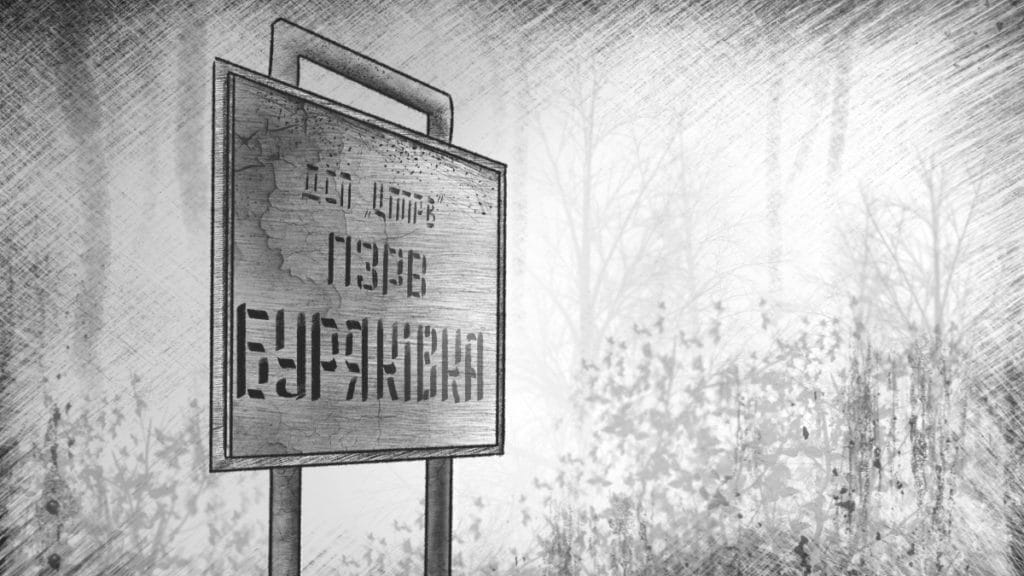
Folded children’s clothes lay in neat heaps at the wooden barracks. As if on command, children came out of the hut wrapped in “waffle” towels, the children were uncomfortable, especially the girls, because 13 years old is the age when your body becomes different.
First, you go through the stage of girlish shame when you need to cover everything, but there wasn’t enough towels for everything, so the girls clung to the towel as if it could hide all the sins of the world.
The children began to squat near a folded pile of clothes, bent down to take something, but a stern unfamiliar voice ordered that nothing could be touched, that the clothes were infected and should undergo special treatment, and if this did not help, then it would be destroyed, because it was extremely dangerous for health.
What does this remind you of? Without reference to time and historical events? Just imagine this picture. A barrack. A pile of folded clothes. Trembling with fear and shame, children wrapped in identical towels. Now, imagine this voice: imperative, without sympathy. What does it say in your souls, in your memory?
“I was among these children. My class, my clothes that my mother sewed for me for the summer, I grew up from the old and generally matured – it was a T-shirt and blue breeches. I didn’t see these clothes again. And I was thinking for a long time about what I would say to my mother? She went to sewing courses, which were difficult for her, but it was important for her to dress me well, and there wasn’t much money to buy something,” a writer Larisa Denisenko from Kiev recalls her summer of 1986.
… June 1986. Chernobyl. Among a large group of Kiev schoolchildren, I was evacuated to a pioneer camp for miners’ children, located on the banks of the Seversky Donets.
“Chernobyl hedgehogs … sick and weak … they all infect everyone with their radiation … we have to clean and wash everything each time… dangerous children … son, you played with them – wash your hands after that … these people from the capital took away the rest of our children – they are mutants.”
We heard all this in our address. And what the views were: from rejection to fear, from hatred to regret, from indignation to ridicule. Indeed, local children first washed their hands after us, as after lichen kittens and puppies. After a while, everyone was allowed to go, and we all forgot.
The real camp life began, with all its lines, slogans and words, simple leisure, joys, advantages, contests and victories, football competitions, losses and quarrels. But we got all the above at the start.
When we got off the dusty bus, we were told not to take our things, but to go to the barracks, undress, wrap ourselves in towels, leave our clothes, and in a crowd follow an adult stranger nowhere.
We did not want to go to this camp. We didn’t plan to spend our summer like that. We simply did not have much choice in those days when everything was hushed up, even crimes, when everything happened on command. When they intimidated both us and our parents: “Do you want them all to die? The state will ensure them.”
We only knew where we were going when we approached the buses. Many of us did not understand where Seversky Donets is.
Everything happened at the end of May
It was May 1st before that. We were forced to go to a demonstration of peace and work, as honorable Kiev schoolgirls and schoolchildren who studied “perfectly”. This should have been perceived as an honor rendered to us by the party. They did not let the losers at the May Day demonstration.
It was May 9, when we greeted veterans and laid flowers – Soviet Kiev imitated ordinary life. Then the panic began, and not because there was an official and honest announcement of what happened at the Chernobyl nuclear power plant, but because rumors were circulating. There were wet rags on the windows, mopping, a tablespoon of wine daily to all family members, like communion.
And a complete misunderstanding of what is happening. There were a lot of adult jokes about impotence in the kitchen: “Poor, poor Ukrainians, neither in your pocket nor in your pants.” They were ironic with heartache, with a complete misunderstanding of what they actually faced, how to overcome it, who will be responsible for it, and what to do next.
Creating myths from ignorance and growing new stereotypes is just as dangerous as hushing up a real catastrophe. Since then, our generation has been contemplating the silence of the authorities, as well as generally suppressing any problems. I’m also thinking about how people still believe that the earth is not round. Carriers of a flat belief that trouble can only concern those who live, for example, in Kiev, or the Crimea, or in the Chernihiv region, or in Volyn, or in Svatovo. And it does not concern us until someone is brought infected with this disaster …
Larisa Denisenko says: “Therefore, I am for the responsible attitude of the state towards people, for the ability of each person to make their own choices, for speaking out the dangers and advantages. Everyone should be aware of their environmental rights and their environmental responsibility.”